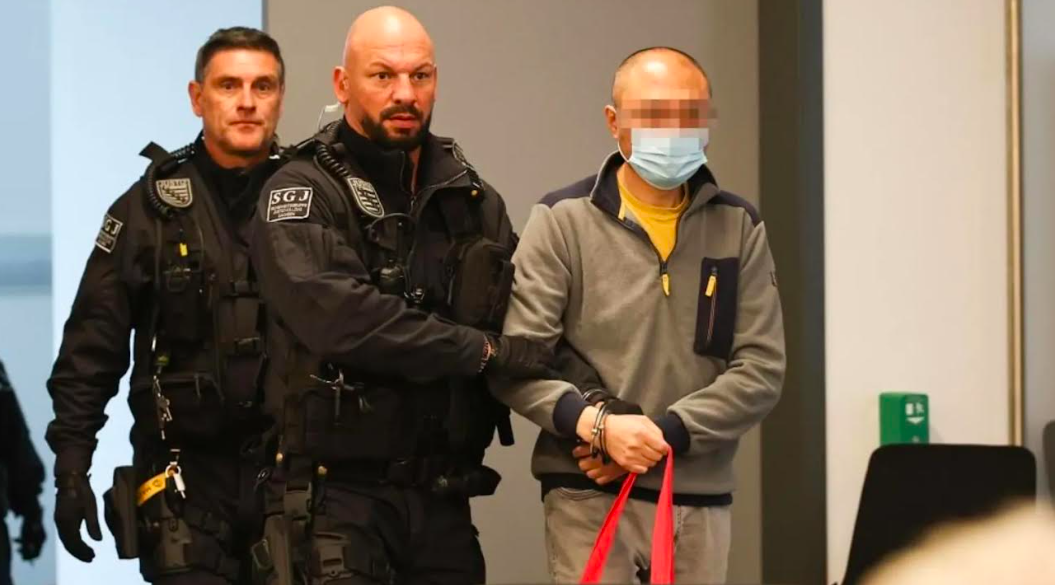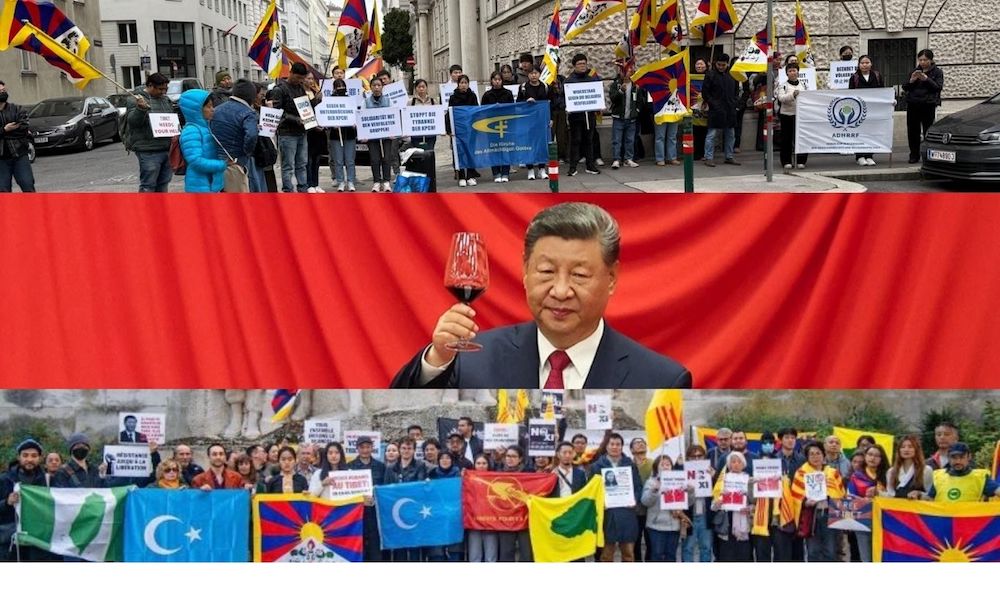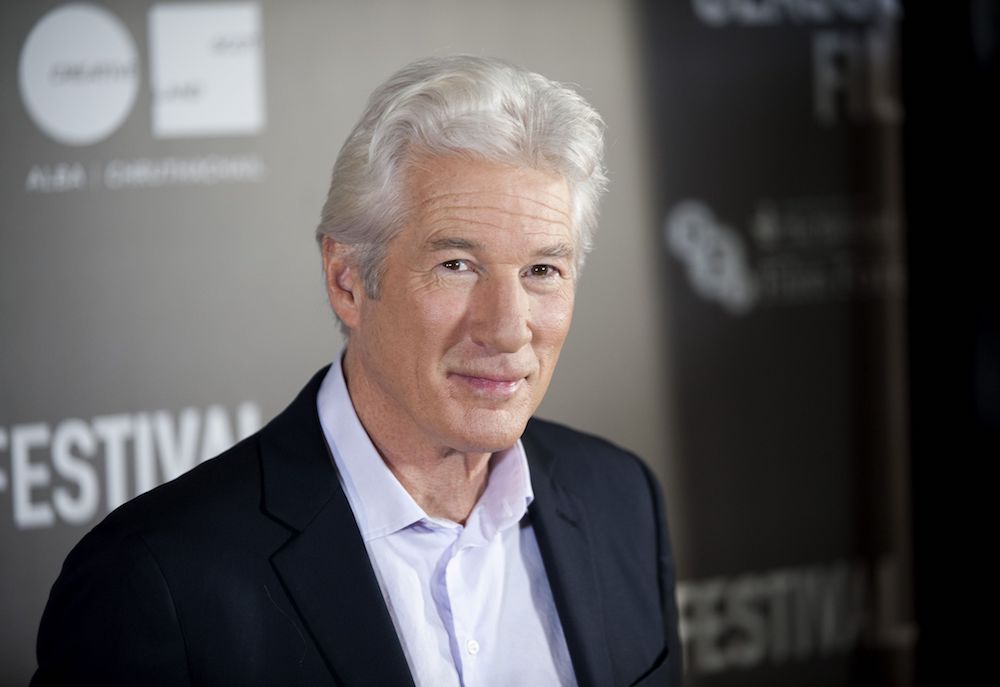BY SUNANDA K DATTA-RAY
With or without a Dalai Lama and no matter what China says, the Tibetan diaspora will evolve into a state without territory
Singapore’s Foreign Minister, Mr George Yeo, was right in writing in a syndicated article that “Tibet is part of a much larger Asian drama that is changing the world”. But he probably wasn’t thinking of the manifestations of an indomitable human spirit I witnessed in a Brussels flat last Sunday evening. That true face of heroism makes Tibet sui generis.
We were in Brussels under the aegis of the Asia-Europe Foundation to discuss some of the issues that the leaders of Asia and Europe would grapple with at the next day’s summit at the Royal Palace. Once the Editors Roundtable, as our group was called, ended, I walked down the deserted road from my hotel to the Avenue des Arts where the Bureau du Tibet functions modestly. Tashi Wangdi, an old friend from Delhi who has spent the last few years in New York, and is regarded as one of the most sagacious members of the Dalai Lama’s administration, is now in charge. I knew he would be working late. Why became clear when the doorbell shrilled at 9.00 pm. “Another voter!” Tashi exclaimed, and someone rushed to activate the door-opening mechanism downstairs so that the caller could come up.
The drama was repeated twice more, the last time around 10 o’ clock at night. A cheerful Hindi-speaking middle-aged woman, a sturdy youth and an older man in a responsible leadership position proposed a name for Kalon Tripa or Prime Minister, and for Europe’s two representatives in the community’s 46-member Parliament. Watching them completing their forms, pale green for Parliament and the white ‘Kalon Tripa’s Primary Election Form’, it occurred to me they were performing a minuet in the elaborate dance of democracy to which the 1,50,000 Tibetan exiles are committed only because of the Dalai Lama.
For each it was an act of faith that puts to shame the calculations of strategists who think of Tibet only in terms of ‘wedge’ or ‘link’ in Sino-Indian relations. It might be either or both but stressing that stunts the humanity of those three actors in what must be the world’s most extraordinary one-day global polls.
As Sunday evening’s Internet news proclaimed, the process is not without hazards. Armed police stormed at least three polling booths in Nepal and seized the ballot boxes. Apparently, the Nepalese Home Ministry sanctioned the raid. Why? I was reminded of the practical and ideological compulsions of Nepal’s Maoist politicians.
The visit to Kathmandu last month of Mr He Yong, secretary of the 17th Central Committee of the Communist Party of China, with a high-level 21-member delegation may have been significant as indication of tightening screws. Kathmandu’s reported earlier acquiescence in Beijing’s proposal for a joint mechanism to share intelligence on “anti-China activities” was thought to mean ominously that closer tabs would be kept on the 20,000 Tibetan refugees in Nepal and the information collected forwarded to China. Mr He complimented Kathmandu on diligently doing as it was told. He was pleased with “Nepal’s ‘One China’ policy and the alertness adopted by the country over the Tibet issue.”
The origins of the voting, which passed smoothly in Brussels where more than 60 Tibetans exercised the franchise throughout the day but was rudely disturbed in Nepal, go back to the Dalai Lama’s political realism that led to the first Tibetan Parliament in 1960. Understanding long before Singapore’s Foreign Minister pointed out that “old Tibet” whose “political economy was based on the feudal domination of monasteries over rural serfs” was not Shangri-La and “should not be romanticised,” the Dalai Lama invited suggestions from all Tibetans in exile on a draft democratic Constitution. It’s said that India’s first President, Rajendra Prasad, scrutinised and approved the document which was announced in 1963.
Other consultations followed and, eventually, a draft Charter set up three autonomous institutional bodies to democratise the polity in exile. It’s a system of great complexity with 65 local election commissions in India, Nepal, Bhutan, Europe, North America, Taiwan, Japan and Australia under the two-tier Central Election Commission in a unique blend of Buddhist and United Nations principles that seems to meet most expectations except, perhaps, those of groups like the Tibetan Youth Congress which are impatient of the Dalai Lama’s conciliatory Middle Way approach. But even they are included in the evolutionary process, and in the special conference the Dalai Lama called in Dharamsala in November 2008. The legislative system under India’s arbitration procedure permits eventual recourse to the mainstream courts.
The future prompts speculation as the Dalai Lama at 74 confesses to intimations of mortality and suggests that his incarnation might be born “outside China”. However, loyal Tibetans do not take this to mean — as Mr Yeo assumes — “Tawang in Arunachal Pradesh where the 6th Dalai Lama came from, a Tibetan area controlled by India but claimed by China”. All of Tibet is “outside China” for anyone save Chinese nationalists, whether at home in China or in the diaspora.
The three voters I watched until the six ballot boxes were sealed and taken away were as unimpressed by Mao Tse-tung’s “peaceful liberation” and redistribution of monastic lands as they are uninterested in Tawang’s status which exercises many Indians who read Mr Yeo’s views. They are waiting now for the final voting on March 20 and the results that have been promised by the end of April. The great hope is that the next Kalon Tripa will be as learned and wise as Professor Samdhong Rimpoche, head of the Institute of Higher Tibetan Studies at Sarnath and sometime chairman of India’s society of vice-chancellors, who cannot stand for a third term.
Beyond that, last Sunday’s election promises that with or without a Dalai Lama whom the world recognises, and no matter what China says, the Tibetan diaspora will evolve into a state without territory. Westphalian theory is not Asian reality.
Meanwhile, Tibetans even here in Brussels wonder why the soft-spoken devoutly Catholic Mr Yeo should hob-nob with the controversial Chinese-nominated Panchen Lama when the youth they regard as the true holder of the title has disappeared in the maws of the Chinese state. His action is contrasted with the impartiality displayed by Singapore’s veteran creator, Mr Lee Kuan Yew, who snubbed Premier Hua Guo Feng by refusing to accept his gift of Neville Maxwell’s controversial book, India’s China War.
[OPINION-DISCLAIMER]









